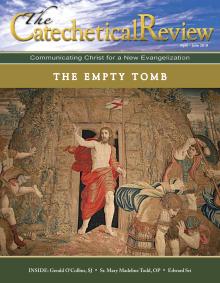What is the goal of catechesis? To make the faith the center of our lives. St. John Paul II made this clear: “Catechesis aims therefore at developing understanding of the mystery of Christ in the light of God's word, so that the whole of a person's humanity is impregnated by that word.” We come to know Christ so that he can shape the way that we live concretely and as a whole. Pope Benedict XVI said the same about Catholic education more broadly, claiming that it should “seek to foster that unity between faith, culture and life which is the fundamental goal of Christian education.” An important reason why catechists have to work for this goal is that education is the way in which we pass on an identity and way of life. Education forms culture, understood broadly as our way of life. Our children will either use their faith to navigate the challenges of the world or will subordinate their faith to a secular worldview. Catechists impart not just the content of the faith but seek to form a life that embodies that faith. If our children conform to the secular culture more than to the faith, this entails a breakdown of our catechetical and educational efforts. Christopher Dawson, more than any other Catholic thinker, has recognized the centrality of religion in culture and education’s role in forming culture. Dawson (1889-1970) was an English-Welsh convert to Catholicism and an historian who produced a vast synthesis of history, the human sciences, and theology stretching from prehistoric times to the crisis of the mid-twentieth century. The thread that united all of his works was the thesis that religion is the heart of culture. Tracing the role of religion throughout history, he noted that modern culture has a void in place of this heart, which it attempts to fill with other secular ideologies. Without a religious renewal, Dawson thought the material advances of technology would prove self-destructive for our culture, a prediction which partially came true in the World Wars.
The rest of this online article is available for current Guild members.
This article is from The Catechetical Review (Online Edition ISSN 2379-6324) and may be copied for catechetical purposes only. It may not be reprinted in another published work without the permission of The Catechetical Review by contacting [email protected]


















